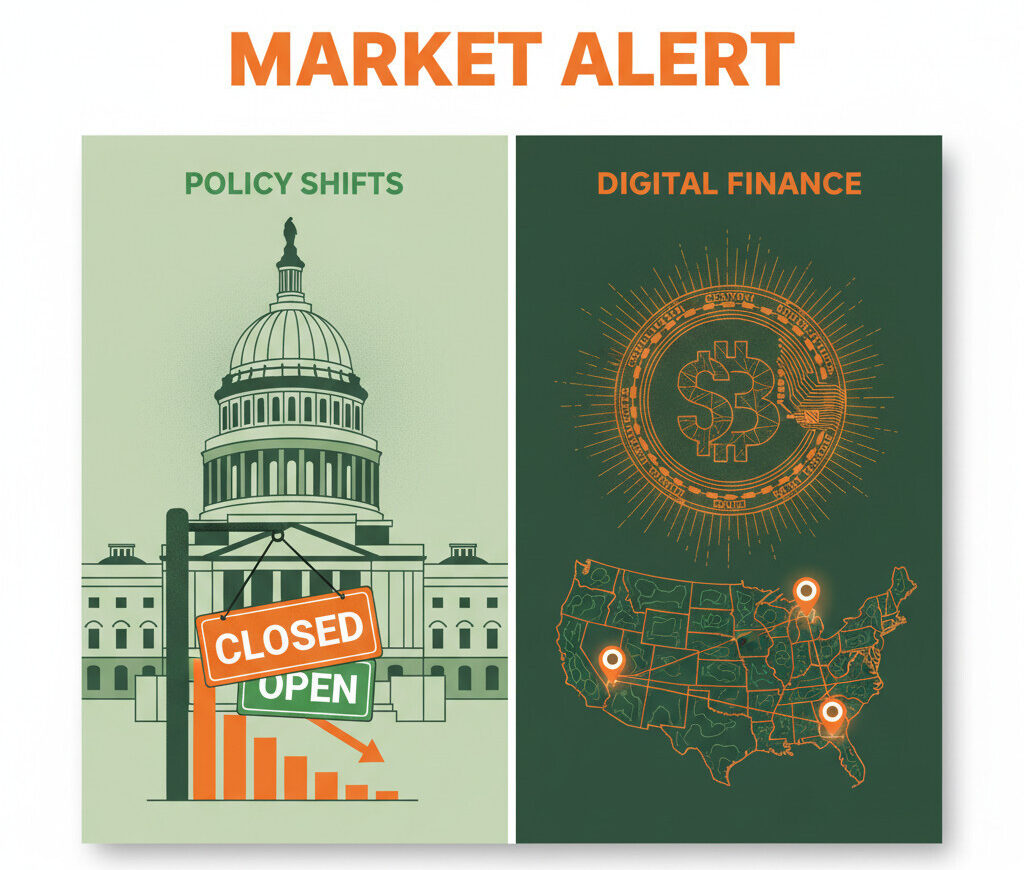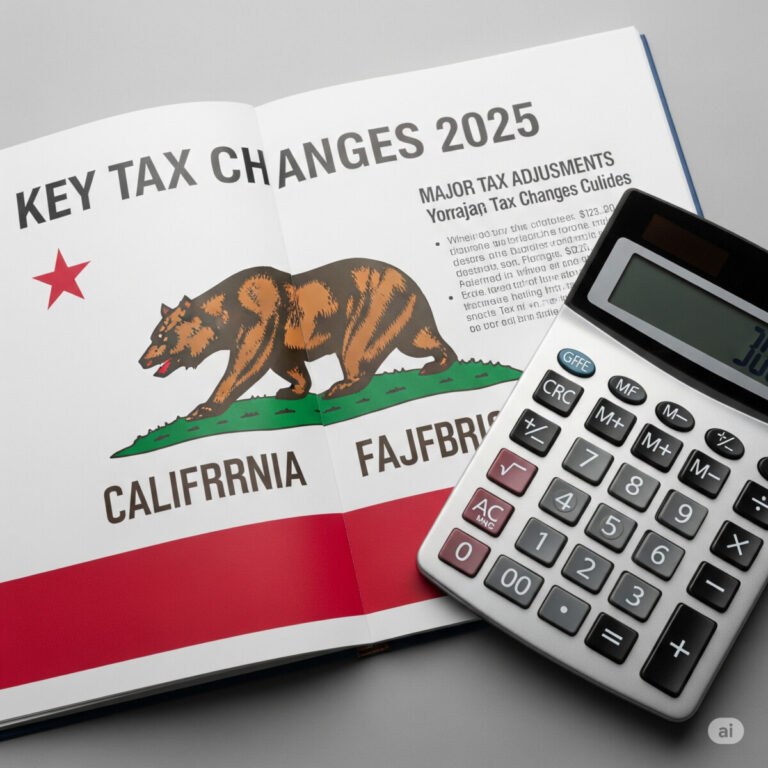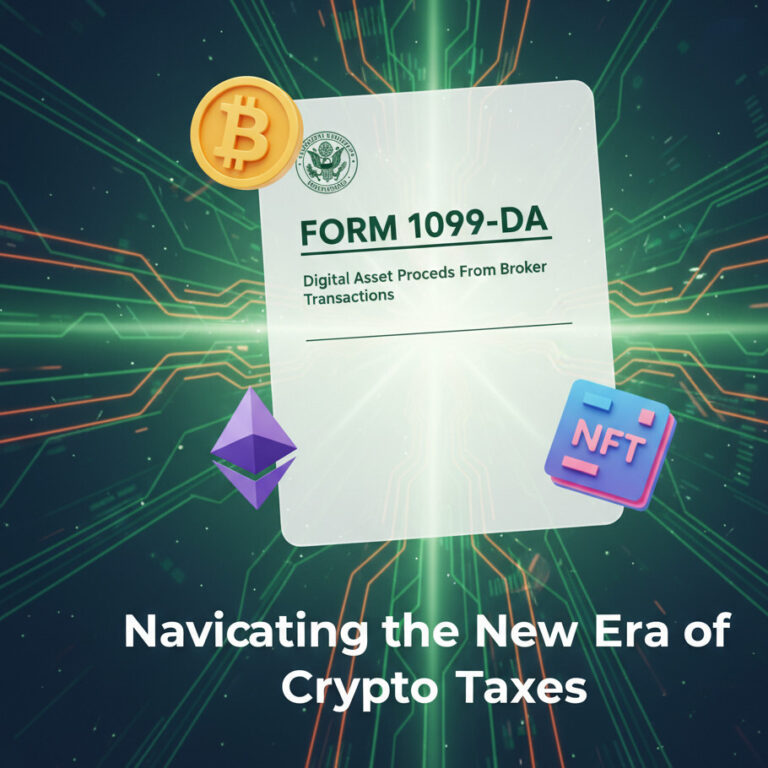November 2025 US Tax Matters Update: Government Shutdown ends, New Crypto Rules
Let’s be real for a second—does it feel like the tax world is in total overdrive lately? Because it absolutely is. We just came out of a massive government shutdown that left huge questions hanging in the air, and while the lights are back on in D.C., the confusion hasn’t exactly cleared up.
From the IRS playing catch-up with crypto to states rewriting their own rulebooks while the Feds bicker, it’s a lot to take in. If you’re feeling a bit overwhelmed by the headlines, don’t worry. I’m going to break down exactly what happened when the government hit “pause” and, more importantly, what it means for your money going forward. 😊
1. The Shutdown & The Healthcare Credit Fight 🏥
So, let’s talk about the elephant in the room. The federal government was shut down for a staggering 43 days. That is a long time to be out of office! It caused missed paychecks and disrupted programs everywhere. But even though a deal was struck to turn the lights back on, it felt more like a temporary patch than a permanent fix.
The biggest sticking point? The Enhanced Premium Tax Credit (PTC). This is basically a subsidy that helps millions of people afford health insurance on the marketplace.
The Premium Tax Credit isn’t just a small deduction; for many families, it’s the only thing making health insurance affordable. The fight is over whether to extend the enhanced version of this credit or let it expire.
The political battle lines were drawn pretty clearly:
- Democrats: Pushed hard to extend these credits, arguing it’s vital for lowering the cost of living and solving healthcare access issues.
- Republicans: Viewed the extension as a non-starter, arguing it just pads the pockets of insurance companies, and pushed for alternatives like pre-funded health accounts.
2. Crypto, Trusts, and the IRS “Safe Harbor” 🪙
While Congress was gridlocked, the IRS was actually quite busy. They dropped some major guidance regarding cryptocurrency, specifically focusing on something called “Staking.”
If you’re new to this, think of staking like earning interest on a savings account, but for the blockchain. You lock up your digital assets to help secure the network, and you get rewarded with more coins. It’s a core part of the crypto world now.
The New “Safe Harbor” Rule
The IRS created a “Safe Harbor” for investment trusts (think Crypto ETFs). This gives them a clear path to stake their assets without messing up their tax status. This is huge for institutional adoption!
This isn’t a free-for-all. To qualify for this safe harbor, trusts have to jump through very specific hoops:
- The trust must be publicly traded.
- It can only hold one single type of digital asset (plus cash).
- It must use a professional custodian.
- It must be insured against “slashing” (penalties for network errors).
3. A Snapshot of State Tax Changes 🗺️
Here is where things get really interesting. While the Feds are stuck in stalemates, individual states are moving at light speed to change their tax codes. It proves that a “stable” tax code is basically a thing of the past.
Let’s take a quick tour of the major shakeups happening right now:
| State / City | The Change | What it Means |
|---|---|---|
| Pennsylvania | Decoupling from Federal Code | PA is rejecting new federal write-off rules. Businesses need to do two separate sets of tax math now. |
| Seattle, WA | B&O Tax Threshold Hike | Exemption jumped from $100k to $2 Million! Small businesses get a break; big businesses pay more. |
| Missouri | Sales Tax Ruling | Courts narrowed the “temporary storage” exemption. Storing goods there just got more expensive. |
| Nebraska | Property Valuation | Supreme Court ruled you can use actual rent, not just market averages, to value property. |
| California | Unclaimed Property | Sent out 4,000+ compliance letters. If you’re holding unclaimed assets, they are watching. |
🔢 Seattle Tax Exemption Checker
Seattle just raised the Business & Occupation (B&O) tax exemption threshold massively. See if your small business might now be exempt.
Key Takeaways from the Chaos 📝
If you only remember three things from this tax update, make it these:
- Political Gridlock Hits Your Wallet: The fight in D.C. isn’t just noise; it directly affects things like your healthcare premiums and tax credits.
- Innovation Outpaces Regulation: The IRS is constantly running to catch up with tech like Crypto. If you invest in digital assets, the rules are being written as you play.
- Your State Code is a Moving Target: Don’t just watch the federal news. States like PA, WA, and CA are making massive changes that could affect you more than federal laws do.
Tax Shakeup Summary
Frequently Asked Questions ❓
It’s definitely a wild time for taxes, but staying informed is half the battle. Whether you’re a crypto investor, a business owner in Seattle, or just trying to figure out your healthcare credits, keep your eyes peeled for these changes. Got any questions about how these updates affect you? Drop them in the comments below! 😊







